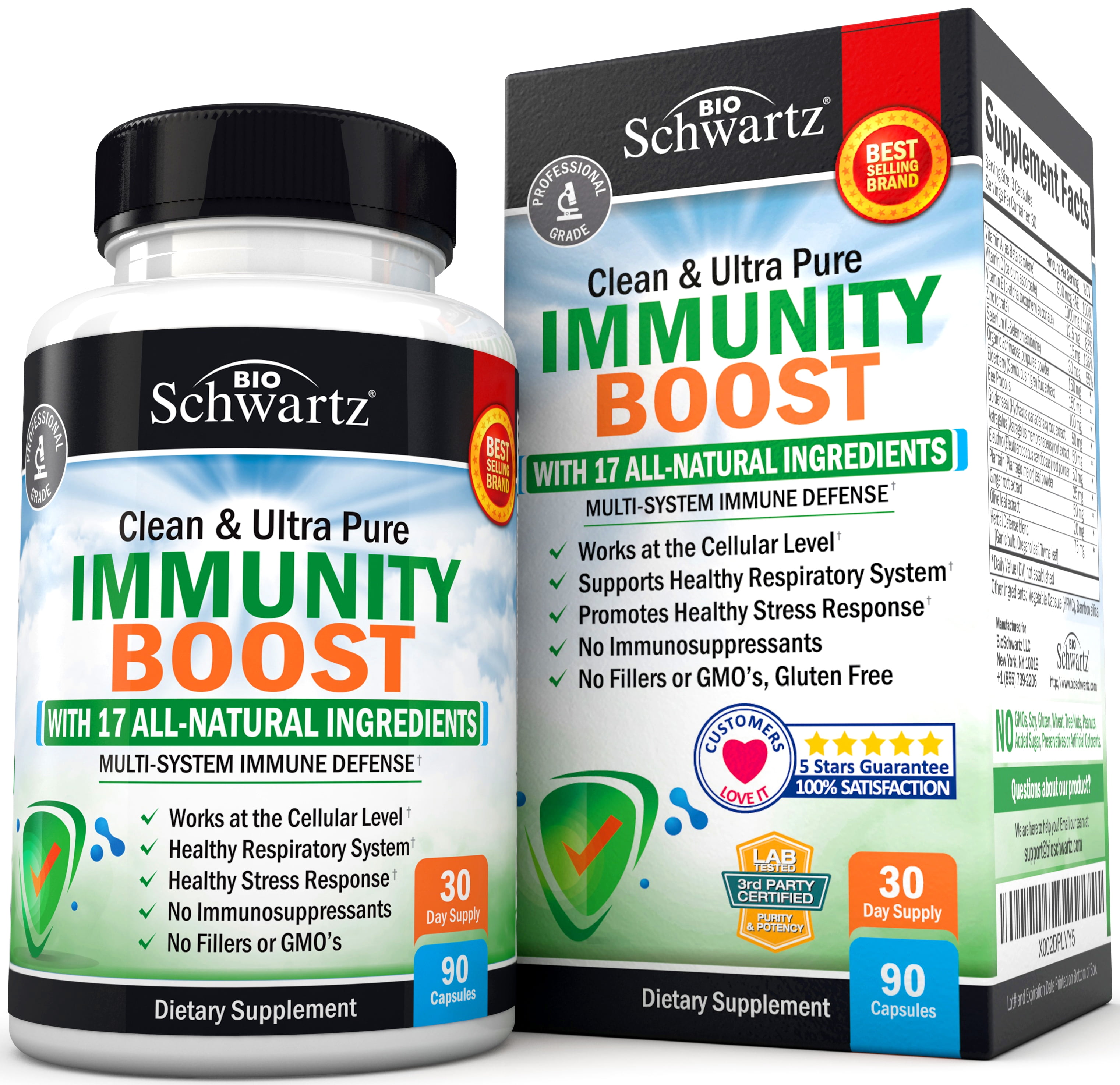Supplements to Boost Immune System

Vitamin C
Vitamin C is a powerful antioxidant that helps protect against free radical damage and boosts the immune system. It helps stimulate the production of white blood cells, which are essential in fighting infections. Vitamin C can be found in citrus fruits, strawberries, and kiwi, but it can also be taken in supplement form.
Benefits of Vitamin C
- Helps prevent and treat the common cold
- Reduces the risk of chronic diseases
- Improves skin health
Recommended Dosage of Vitamin C
The recommended daily intake of vitamin C for adults is between 65-90 mg per day. However, during times of stress or illness, higher doses may be needed. It is important to consult with a healthcare professional before taking high doses of vitamin C.
Vitamin D
Vitamin D is an essential nutrient that our body needs to function properly. It plays a crucial role in regulating the immune system and can help prevent infections. Vitamin D can be obtained from sunlight, but it can also be taken in supplement form.
Benefits of Vitamin D
- Helps prevent respiratory infections
- Reduces the risk of chronic diseases
- Improves bone health
Recommended Dosage of Vitamin D
The recommended daily intake of vitamin D for adults is between 600-800 IU per day. However, the amount needed may vary depending on age, weight, and other factors. It is important to consult with a healthcare professional before taking vitamin D supplements.
Zinc
Zinc is an essential mineral that plays a vital role in the immune system. It helps in the production of white blood cells and can help prevent infections. Zinc can be found in foods like oysters, beef, and chicken, but it can also be taken in supplement form.
Benefits of Zinc
- Reduces the duration and severity of the common cold
- Supports wound healing
- Improves skin health
Recommended Dosage of Zinc
The recommended daily intake of zinc for adults is between 8-11 mg per day. However, higher doses may be needed during times of stress or illness. It is important to consult with a healthcare professional before taking high doses of zinc supplements.
Probiotics
Probiotics are live bacteria and yeasts that are good for your health, especially your digestive system. They help keep your gut healthy, which is essential for a strong immune system. Probiotics can be found in foods like yogurt, sauerkraut, and kimchi, but they can also be taken in supplement form.
Benefits of Probiotics
- Improves gut health
- Boosts the immune system
- Reduces inflammation
Recommended Dosage of Probiotics
The recommended daily intake of probiotics varies depending on the strain and form of the supplement. It is important to follow the instructions on the label or consult with a healthcare professional.
Echinacea
Echinacea is a plant that has been used for centuries to boost the immune system and treat infections. It contains compounds that help stimulate the production of white blood cells, which are essential in fighting infections. Echinacea can be taken in supplement form or brewed as a tea.
Benefits of Echinacea
- Helps prevent and treat respiratory infections
- Reduces the duration and severity of the common cold
- Boosts the immune system
Recommended Dosage of Echinacea
The recommended daily intake of echinacea varies depending on the form of the supplement. It is important to follow the instructions on the label or consult with a healthcare professional.
Advantages and Disadvantages
| Supplement | Benefits | Side Effects |
|---|---|---|
| Vitamin C | - Boosts immune system - Reduces risk of chronic diseases - Improves skin health | - Upset stomach - Diarrhea - Headache |
| Vitamin D | - Helps prevent respiratory infections - Reduces risk of chronic diseases - Improves bone health | - Nausea - Vomiting - Weakness |
| Zinc | - Reduces duration and severity of common cold - Supports wound healing - Improves skin health | - Upset stomach - Diarrhea - Headache |
| Probiotics | - Improves gut health - Boosts immune system - Reduces inflammation | - Upset stomach - Diarrhea - Gas |
| Echinacea | - Helps prevent and treat respiratory infections - Reduces duration and severity of common cold - Boosts immune system | - Upset stomach - Dizziness - Headache |
Conclution
Supplements can be a helpful addition to a healthy lifestyle and can help boost your immune system. However, it is important to consult with a healthcare professional before taking any supplements, especially in high doses. A balanced diet and regular exercise are also essential in maintaining a strong immune system.
FAQs
1. Can supplements replace a healthy diet?
No, supplements cannot replace a healthy diet. They are meant to supplement your diet and fill in any nutritional gaps that may be present.
2. Are supplements safe to take?
Most supplements are safe to take when taken in recommended doses. However, it is important to consult with a healthcare professional before taking any supplements, especially if you have any medical conditions or are taking medication.
3. Can supplements interact with medication?
Yes, some supplements can interact with medication. It is important to consult with a healthcare professional before taking any supplements, especially if you are taking medication.
4. Can supplements prevent COVID-19?
No, there is no supplement or medication that can prevent COVID-19. The best way to prevent COVID-19 is to practice good hygiene, wear a mask, and practice social distancing.
